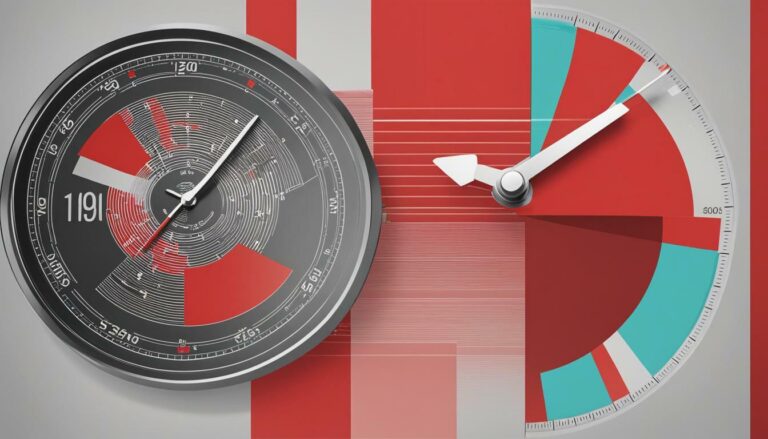Overcoming Credit Scoring Challenges for Freelancers: A Guide

Freelancers often encounter unique challenges when it comes to credit scoring, which can impact their financial well-being and access to credit. Variable income, self-employment taxes, inconsistent workload, client payment delays, lack of benefits, retirement planning, emergency funds, business expenses, client acquisition costs, and financial management are just some of the obstacles that freelancers face in establishing their creditworthiness in the gig economy.
To help freelancers navigate these credit scoring challenges, we have created a comprehensive guide that provides actionable steps and strategies to overcome them. Whether you’re a gig worker, independent contractor, or self-employed professional, this guide will equip you with the knowledge and tools necessary to improve your credit score and enhance your financial stability.
- Freelancers face specific challenges when it comes to credit scoring, including variable income and inconsistent workloads.
- Managing finances and planning for emergencies are essential for freelancers to build creditworthiness.
- Avoiding bankruptcy is crucial, as it can have detrimental effects on credit scores and financial well-being.
- Effective money management, negotiation of payment terms, and following credit best practices can help freelancers overcome credit scoring challenges.
- Freelancers should be aware of the Bank Secrecy Act and its implications for cash transactions.
The Challenges of Freelancer Credit Scoring
Freelancers face numerous challenges that can affect their credit score, such as unpredictable income, self-employment taxes, and client payment delays. With variable income, freelancers often experience highs and lows, making it difficult for lenders to assess their creditworthiness. This can result in higher interest rates or even denial of credit. Additionally, self-employment taxes can eat into earnings, reducing available funds for debt repayment and negatively impacting credit scores.
Inconsistent workload is another challenge for freelancers. There may be periods of high demand followed by periods of little to no work. This income volatility can make it challenging to meet financial obligations and maintain a stable credit history. Furthermore, client payment delays are common in the freelance world, as clients may not prioritize timely payments. This can lead to cash flow issues and late payment records on credit reports.
The lack of benefits, such as health insurance and retirement plans, can also impact freelancers’ credit scores. Without employer-sponsored benefits, freelancers are responsible for covering these costs themselves. This can strain finances and limit the ability to adequately save for retirement or unexpected expenses. Moreover, freelancers often have substantial business expenses, including equipment, software, and marketing costs. These expenses can make it difficult to pay personal bills and manage credit responsibly.
🚨 TUIC Errors + Low Credit Score?
CreditScoreIQ helps you build credit faster by reporting utility bills to all 3 bureaus—while you dispute errors.
Start Building Credit Today →
“As a freelancer, my income can vary significantly from month to month. It’s frustrating because lenders don’t always understand that I can still make loan payments, even with an irregular income.” – Sarah, Freelance Graphic Designer
“I’ve had clients who take forever to pay, and it’s affected my credit score. It’s hard to keep up with bills when you’re waiting on payments. It’s something freelancers need to be prepared for.” – John, Freelance Writer
Summary:
Freelancers face a unique set of challenges when it comes to credit scoring. Their variable income, self-employment taxes, inconsistent workload, client payment delays, lack of benefits, and business expenses all contribute to potential credit hurdles. Taking proactive steps to manage finances, prioritize savings, negotiate payment terms, and follow credit best practices can help freelancers overcome these challenges and maintain a healthy credit score.
Proactive Steps to Avoid Bankruptcy
Filing for bankruptcy should be a last resort for freelancers, as it can have serious consequences for their credit score, assets, and professional reputation. To avoid reaching this critical point, it’s crucial for freelancers to take proactive steps to manage their financial challenges effectively. By implementing the following strategies, freelancers can protect their creditworthiness and maintain a healthy financial position.
Create a realistic budget:
A budget is a powerful tool that can help freelancers gain control over their finances. Start by tracking monthly income and expenses to understand where the money goes. This will enable freelancers to identify areas where they can cut back and allocate funds more wisely. By setting realistic spending limits and sticking to them, freelancers can minimize the risk of accumulating excessive debt and improve their overall financial health.
Build an emergency fund:
Freelancers often face income fluctuations and unexpected expenses. Building an emergency fund can provide a financial safety net during challenging times. Aim to save at least three to six months’ worth of living expenses. This fund can help cover basic needs, such as rent or mortgage payments, utilities, and groceries, in case of unforeseen circumstances like a sudden decrease in clients or a medical emergency.
Communicate with creditors:
When facing financial difficulties, it’s essential to maintain open lines of communication with creditors. If freelancers anticipate problems in making payments on time, they should reach out to their creditors and explain the situation. Many creditors are willing to work out a payment plan or offer temporary relief options, such as deferring payments or reducing interest rates. Proactive communication can help freelancers avoid negative credit reporting and maintain a positive relationship with their creditors.
| Benefits of Proactive Steps | Consequences of Bankruptcy |
|---|---|
| Protect credit score | Negative impact on credit score |
| Preserve assets | Potential loss of assets |
| Maintain professional reputation | Damage to professional reputation |
| Access to credit | Restricted access to credit |
| Lower potential legal costs | Incur legal costs |
By taking proactive steps to manage financial challenges, freelancers can safeguard their creditworthiness, protect their assets, and maintain a positive professional reputation. It’s important to remember that financial stability is a long-term goal that requires consistent effort and discipline. Implementing these strategies will not only help freelancers avoid bankruptcy but also set them on a path toward financial success.

“Filing for bankruptcy should always be a last resort. It’s crucial for freelancers to be proactive in managing their financial challenges to avoid such a devastating outcome.”
Managing Credit Scoring Challenges for Freelancers
Freelancers can overcome credit scoring challenges by adopting effective money management strategies and following credit best practices. Understanding how to manage finances as a freelancer is crucial for maintaining a healthy credit score and ensuring financial stability in the long run.

One of the key aspects of money management for freelancers is knowing your monthly average income and expenses. This information will help you plan a realistic budget and allocate funds accordingly. By tracking your income and costs, you can identify areas where you can cut back or make adjustments to improve your financial situation.
Stability is another important factor to consider. As a freelancer, income may fluctuate, so it’s essential to have backup plans in place. Building an emergency fund can provide a safety net during lean months or unexpected expenses. Additionally, negotiating payment terms with clients can help ensure a steady flow of income.
A debt management plan is also a valuable tool for freelancers. By prioritizing and managing your debts effectively, you can avoid late payments and potential damage to your credit score. Tax preparation is another crucial aspect of financial management for freelancers. Staying on top of your tax obligations will help you avoid penalties and maintain financial stability.
Lastly, following credit best practices is essential for freelancers. This includes regularly checking your credit report for errors, paying bills on time, and keeping credit utilization low. By demonstrating responsible credit behavior, freelancers can build and maintain a positive credit history.
Table: Money Management Tips for Freelancers
| Tip | Description |
|---|---|
| Know your monthly average income and expenses | Track your income and costs to plan a budget |
| Plan for stability | Have backup plans and negotiate payment terms |
| Create an emergency fund | Build a safety net for unexpected expenses |
| Make a debt management plan | Prioritize and manage your debts effectively |
| Prepare for taxes | Stay on top of your tax obligations |
| Follow credit best practices | Check your credit report, pay bills on time, and keep credit utilization low |
By implementing these money management strategies and following credit best practices, freelancers can navigate credit scoring challenges and maintain a strong financial foundation. With diligent financial planning and responsible credit behavior, freelancers can safeguard their creditworthiness and achieve their long-term financial goals.
Understanding the Bank Secrecy Act
Freelancers should be aware of the Bank Secrecy Act and the potential consequences of breaking up large cash transactions to evade reporting requirements. This act mandates that banks report any transaction involving $10,000 or more to the federal government. The goal of this legislation is to prevent money laundering, terrorist financing, and other criminal activities.
Breaking up cash transactions into smaller withdrawals, known as structuring, is considered illegal under the Bank Secrecy Act. This can attract legal investigation and serious repercussions. The act is enforced by the Financial Crimes Enforcement Network (FinCEN), which has the authority to investigate and penalize individuals who attempt to evade transaction reporting.
| Consequences of breaking the Bank Secrecy Act: | Penalties for non-compliance: |
|---|---|
| – Legal investigation | – Fines |
| – Criminal charges | – Imprisonment |
| – Freezing of assets | – Seizure of funds |
It is important for freelancers to understand their obligations under the Bank Secrecy Act and take steps to comply with reporting requirements. This includes avoiding any attempt to structure cash transactions to circumvent reporting thresholds. By maintaining transparent financial practices, freelancers can protect themselves from legal trouble and ensure compliance with federal regulations.
Conclusion
Effectively managing credit scoring challenges is crucial for freelancers to maintain financial stability and access to credit. Freelancers often face various financial obstacles, such as variable income, self-employment taxes, inconsistent workload, client payment delays, lack of benefits, retirement planning, emergency funds, business expenses, client acquisition costs, and financial management. Navigating these challenges is essential to avoid credit score issues that can impact their ability to secure loans, mortgages, or other financial opportunities.
Bankruptcy should always be considered as a last resort for freelancers facing financial difficulties. Filing for bankruptcy can have severe consequences, including a negative impact on their credit score, loss of assets, damage to professional reputation, limited access to credit, legal costs, and becoming a public record. It is important for freelancers to take proactive steps to manage their financial challenges before considering such a drastic measure.
To overcome credit scoring challenges, freelancers can follow several money management tips. This includes understanding their monthly average income and costs, creating and sticking to a budget, having backup plans for financial stability, exploring ways to increase income, negotiating favorable payment terms with clients, building an emergency fund, implementing a debt management plan, being prepared for taxes, and following credit best practices.
Additionally, freelancers need to be aware of the Bank Secrecy Act, a federal law that requires banks to report any transaction involving $10,000 or more to the government. It is important to avoid breaking up large cash transactions into smaller withdrawals to evade reporting requirements, as this can be seen as structuring and may lead to legal investigation.
FAQ
Q: How do freelancers overcome credit scoring challenges?
A: Freelancers can overcome credit scoring challenges by managing their finances effectively, budgeting, increasing income, negotiating payment terms, and following credit best practices.
Q: What should freelancers consider before filing for bankruptcy?
A: Filing for bankruptcy should be a last resort for freelancers as it can severely impact their credit score, result in the loss of assets, damage professional reputation, involve legal costs, and become a matter of public record.
Q: What money management tips can help freelancers overcome credit scoring challenges?
A: Freelancers can manage their finances by knowing their monthly average income and costs, planning a budget, having backup plans for stability, increasing income, building an emergency fund, making a debt management plan, getting ready for taxes, and following credit best practices.
Q: What is the Bank Secrecy Act and how does it affect freelancers?
A: The Bank Secrecy Act requires banks to report any transaction involving $10,000 or more to the federal government. Freelancers should be aware that breaking up large cash transactions into smaller withdrawals to evade reporting requirements can be seen as structuring, which may lead to a legal investigation.
Ready to Improve Your Credit?
Disputing TUIC errors is step one. Step two? Boost your score by reporting utility payments with CreditScoreIQ.
Get Started Now (Only $1 Trial) →3-bureau reporting • $1M identity insurance • Dark web monitoring






